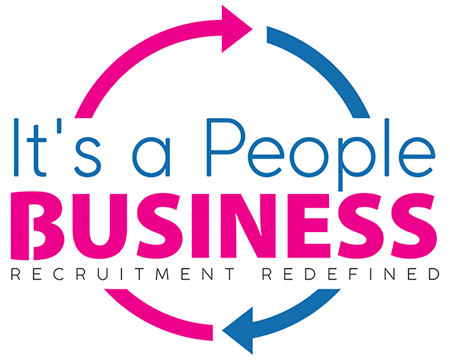
In the world of recruitment, companies are constantly searching for new and innovative ways to find quality talent. One approach that has proven to be highly effective is the utilisation of employee referral programs. Employee referral programs are designed to incentivise current employees to recommend top talent to their company's recruiting team. Not only do these programs increase the quality of hires, but they also improve employee engagement and retention rates. In fact, according to a study conducted by Aberdeen Group, employee referral programs can result in up to 40% of all hires.
Employee referral programs are considered as an essential component in any recruitment strategy.
Employee referral programs are considered as an essential component in any recruitment strategy.
In today's highly competitive job market, companies must think outside of the box to attract and retain top talent. Not only do employee referral programs offer a cost-effective and reliable way to identify and hire qualified candidates, but they are also a unique way to show appreciation for current employees. As a result, employee referral programs are becoming increasingly popular across industries and are considered by many to be an essential component in any recruitment strategy. In this blog post, we will explore the benefits of employee referral programs, share tips for creating an effective program, and discuss why they are an excellent way to improve your hiring process.
1. Increased candidate quality
1. Increased candidate quality

Employee Referral Programs have proven to be a valuable tool for organisations seeking to attract and hire high-quality candidates. One of the key benefits of these programs is that they often result in increased candidate quality. This is because referral candidates are often pre-screened by someone in the organisation who knows the job requirements and culture well, meaning that only candidates who are a good fit are referred. Additionally, referred candidates are more likely to have a personal connection or relationship with the referring employee, which can increase their motivation to succeed in the role. As a result, organisations that implement Employee Referral Programs often have a higher success rate in hiring top talent than those that rely solely on traditional recruiting methods.
2. Reduced recruitment costs
2. Reduced recruitment costs

Employee Referral Programs have become an essential tool for companies in the quest to hire top talent and have gained increasing popularity in recent years as companies realise the benefits they offer. Aside from the fact that referrals are a great way of accessing passive job seekers, implementing an Employee Referral Program can also significantly reduce recruitment costs. Traditional recruiting methods such as job boards and recruitment agencies can be expensive, and the ROI isn't always guaranteed. In contrast, Employee Referral Programs have a low-cost-per-hire because employees typically refer qualified candidates who are more likely to accept the job offer.
A streamlined and targeted recruitment process.
In comparison to traditional recruiting methods such as job boards, recruitment agencies, and online ads, etc., employee referral programs save companies time and money. The recruitment process is streamlined and targeted, giving hiring managers access to quality candidates who would otherwise be hard to come by through conventional recruitment methods. Therefore, it is no surprise that Employee Referral Programs have proven to be a valuable asset for companies seeking to hire top talent while keeping recruitment costs low.
3. Improved employee retention
3. Improved employee retention
One of the main advantages of Employee Referral Programs (ERPs) is the significant improvement in employee retention rates. When companies use ERPs as part of their talent acquisition strategy, they benefit from hiring employees who are already familiar with their company culture and values. This familiarity creates a sense of loyalty, which can lead to these employees staying with the company for a longer duration.
Create a more stable workforce.
Create a more stable workforce.
Employees who are satisfied with their work environment and feel valued tend to be more productive and engaged, which leads to a better work culture and increased profitability for the organisation. Additionally, ERPs can create a sense of community within the workplace, allowing employees to feel connected to their colleagues and foster a supportive work environment. All of these factors combine to create a more stable workforce and reduce the costs associated with the constant turnover of employees.
4. Valuable brand promotion
4. Valuable brand promotion

Employee Referral Programs provide a valuable opportunity for companies to promote their brand by leveraging their own employees. By creating a culture that encourages employees to refer friends, family, and former colleagues to the company's job openings, the company can establish itself as an employer of choice in the job market. This brand promotion can go a long way in attracting top talent who want to work for a company that is well-regarded and has a reputation for treating its employees well.
Build a strong reputation in the industry.
Build a strong reputation in the industry.
Read More: Mastering the Main Stages of Any Recruitment Discussion: A Practical Guide for Employers
Furthermore, when employees are excited and proud to work for a company, they are more likely to promote the company's products or services, which can lead to increased brand recognition and sales. Overall, Employee Referral Programs provide a valuable branding opportunity that should not be overlooked by companies seeking to attract top talent and build a strong reputation in their industry.
5. Increased diversity in the workplace
5. Increased diversity in the workplace

Employee Referral Programs have the power to attract and hire top talent, especially in the light of an increased focus on diversity in the workplace. With the help of ERPs, companies can expand their reach beyond traditional recruitment methods and attract a wider range of candidates who might not have otherwise applied for the position.
Diverse teams lead to increased innovation, creativity, and profitability.
Diverse teams lead to increased innovation, creativity, and profitability.
A well-established Employee Referral Programs can help to ensure a diverse candidate pool by actively encouraging current employees to refer candidates from various backgrounds, including underrepresented groups. ERPs that prioritise diversity can help create an inclusive and welcoming work environment that attracts top talent. Moreover, studies have shown that diverse teams lead to increased innovation, creativity, and profitability, which makes the value of ERPs that emphasise diversity even more significant.
To Conclude
To Conclude
Employee referral programs have emerged as an effective way to hire top talent for organisations. These programs can be a powerful tool in the hands of hiring teams, as they not only help improve the quality of hires but also reduce hiring costs. Moreover, employees who refer people tend to be engaged and motivated themselves, which in turn contributes to a positive work environment. By encouraging employees to refer their friends and acquaintances, companies can tap into a vast pool of talent that may not be accessible through other channels. Therefore, it is worth considering an employee referral program as a part of the overall recruitment strategy.
Read More: The Benefits of Working with a Flat Fee Recruiter
Reach out to It's a People.Business for expert guidance and support in implementing these best practices. Our team of recruitment professionals can help you develop a cost-effective and efficient hiring strategy that aligns with your business goals. Contact us today to learn more and take the first step towards building a strong and talented team for your small business.
